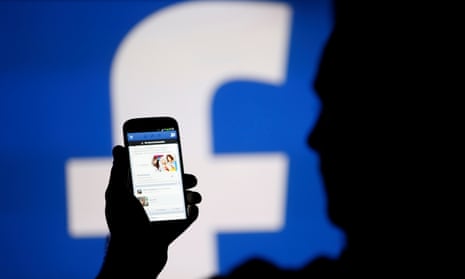Do the benefits of allowing social platforms to host your journalism outweigh the disadvantages? Most publishers, however reluctantly, will say yes and adopt the “we are where we are” argument. Others put a more positive spin on things, maintaining that publishers should go where their audience is, share what advertising revenue is available and trust that they can turn passing interest into loyal (paying) readership.
Yet could it be that the short-term high from socially distributed content – greater reach – inevitably gives way to symptoms of dependency: loss of control and financial damage? Katharine Viner, the editor of The Guardian, has written and spoken of the effects of technology on the news business in recent week, making the argument that “social media companies have become overwhelmingly powerful in determining what we read and whether we make money”. Publisher obsession with algorithm changes and a willingness to give away control of content are evidence of this trend.
Chief among the social media companies Viner references is Facebook. Come September, it will be 10 years since the Mark Zuckerberg-founded platform opened itself up beyond college campuses. In the intervening decade, Facebook has morphed from open social network to opaque advertising platform, one that wants to host, not link to, content. Today, Facebook bears a greater likeness to AOL, CompuServe and Prodigy – those walled gardens of the 1990s that assumed everything would operate within their domain – than the company it was in 2006.
In his 2008 book The Future of the Internet and How to Stop It, Jonathan Zittrain invoked AOL and the rest as a counterpoint to the internet. He described the latter as a “generative” platform, one that “invites innovation” in contrast to the service offered by the former which he labelled “sterile appliances tethered to a network of control”. At the time of writing his book, Zittrain’s key frame of reference was the Apple iPhone, launched the previous year. Acknowledging that the iPhone was beautifully crafted, he cautioned that the control the company exerted over hardware and software ran counter to “much of what we now consider precious about the internet”.
If his thesis appeared to be undermined when Apple introduced the app store – allowing outsiders to submit programs for the iPhone – Zittrain was having none of it. He pointed out that Apple retained strict control over what was allowed into the store, even to the extent of remotely removing downloaded apps from user devices retrospectively.
As much as this idea of applications tethered to appliances is compelling, I’d suggest that something else is going on today – we are voluntarily tethering ourselves to applications. We, the users, are congregating around a small set of apps that offer the scale we crave. Scale doesn’t just appeal to the platform providers, it appeals to users as well – a social network without friends, family or colleagues is a party with no guests. And when looking for scale, it’s difficult to beat Facebook’s 1.7 million monthly active users or, more remarkably, its billion-plus users accessing the service at least once a day.
But while there’s an upside to scale, there are downsides too – both for producers and consumers of quality journalism. These gated, monopolistic and largely algorithmically defined platforms:
Perpetuate our world view by serving up content that previous behaviour suggests we would like rather than offering alternative voices, surprise and serendipity. Tom Steinberg best illustrated this notion recently, in his failed attempt to find a counter to his views on Brexit.
Treat fake news with the same importance as quality journalism. This is in part because these companies insist they are platforms not publishers. (The Washington Post’s media columnist Margaret Sullivan calls Facebook and co “the reluctant news media”.)
Reward those who understand optimisation, not necessarily those who deliver quality journalism
Hoard advertising revenue that might otherwise be shared more equitably among creators of resource-intensive, crafted journalism
There’s a temptation to equate what is happening with social distribution to the uneasy pact publishers entered into with Google. But despite Google’s many imperfections – some of which have attracted the attention of European Commission regulators – the primary aim of a search engine is to open up the web, not close it down. Its purpose is to link outwards.
A decade ago social networks set out do much the same thing, some still do. Today, however, those networks whose business model increasingly demands that content remains within the walled garden – or the “gated enclosure” to borrow Viner’s updated phrase – are reluctant to link outwards. This change has commercial and editorial implications for publishers that should in turn concern anyone looking for vibrant, plural, fact-based, financially sustainable journalism.
Jon Bernstein is an independent digital media consultant, editor and writer, formerly deputy editor, then digital director of New Statesman and multimedia editor at Channel 4 News. He tweets @jon_bernstein
To get weekly news analysis, job alerts and event notifications direct to your inbox, sign up free for Media & Tech Network membership.
All Guardian Media & Tech Network content is editorially independent except for pieces labelled “Paid for by” – find out more here.
